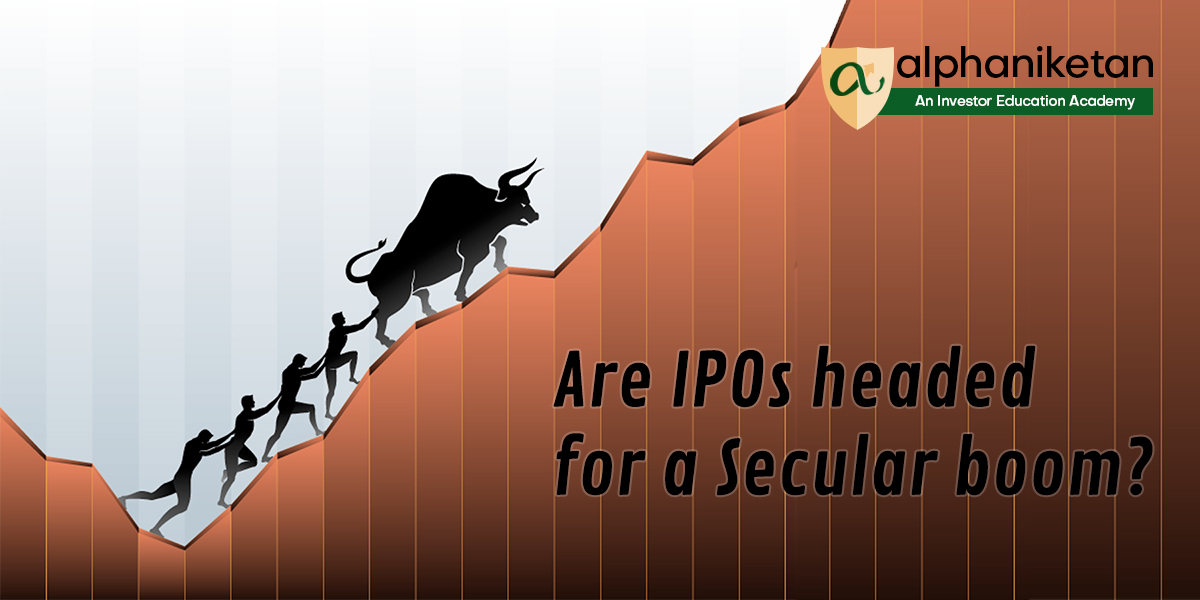There are only two things wrong with money: too much or too little. Charles Bukowski, a German-American author whose literary work revolved around the poor in America, said that in a different context. However, that applies to the boom we see in the initial public offerings or IPO market. There is a deluge out there. Since 2020, as many as 67 companies have hit the market and got Rs. 1,43,724 crore. More companies are on the way.
When such a thing happens, emotions generally tend to trump rationality.
If you look at the data in terms of the financial year, the year 2021-22 could break all records if the likes of the Life insurance Corporation of India and other companies in the list finish the exercise before March 2022. As of October 2021, 47 companies have raised over Rs. 70,000 crore. The previous highest was 81 companies raising Rs. 98,984 in 2017-18.
When such a large amount goes into equity assets, expectations go sky-high. Investors cannot be blamed for that. Out of the 67 companies that went public since 2020, as many as 52 companies made money with average gains of 113%. Only 15 companies lost money, with average losses of 22%. It is not bad at all. Overall, selling entities had left some money on the table for those looking to enter.
The other interesting aspect about the IPOs is spread across consumer technology, chemicals, healthcare and financials. They are not concentrated in one particular sector. The previous IPO booms in India were focused on sectors. In the 1990s, the financial services industry witnessed a significant boom. Any company with ”Finance” attached to the name could raise money. The 2000s witnessed an IPO boom that saw technology companies doing the same. So, unlike the previously concentrated IPO booms, it is tempting to use the phrase ”this time it is different.
Diving deeper into the data makes the IPOs story even more enjoyable.
The euphoria is trying to recalibrate the way companies are evaluated. Investment today is a function of tomorrow’s profits. That has resulted in some IPOs getting a market value higher than their trailing fundamentals. For example, our analysis shows that the average multiple of market capitalisation for 21 companies listed since 2020 is 25 times the sales for the preceding year.
Happiest Minds, a software company has created the most value for investors. It trades at just over 20 times sales but has generated 648% returns over the IPO price in just a year for its investors.
Few high profile IPOs have surpassed investor expectations and some have disappointed post their listing. But whilst a lot have been spoken about the rich valuations of some of these companies, a good reference is to study the business cycle of deep tech companies in US. Some have taken 10 years and more to turn profitable but they have created enormous shareholder wealth. The business models of the new tech led customer focussed businesses may no longer get valued on the basis of traditional models. However investor euphoria or extreme frenzy for chasing IPOs of all shape, size and colour may end up spoiling the party.
What could stall the IPO march?
A lot of the euphoria is also driven by the money that flows from foreign portfolio investors. Besides that, there is a surge in domestic flows into equities. Strong liquidity and businesses that promise a future with new technology or a consumer breakthrough make it a case for a secular IPO boom. However, the world economy is yet to recover from the pandemic. As it picks up the pieces, inflation is stubbornly high in major prosperous economies. Interest rates cannot go down further anywhere in the world. Central banks are already raising rates in some key markets like South Korea, Australia, New Zealand, and other parts of Asia. As the flood of money into financial markets slows, institutional investors prefer to put money into relatively safer assets. If the US raises policy rates, that could mean money going out of markets like India to some extent.
A balanced approach by reorienting allocation to high quality stocks in the secondary market may well be a prudent way of managing risk.
References:
https://www.primedatabase.com/pub_demo.asp
Thank you for reading this post, don't forget to subscribe!




